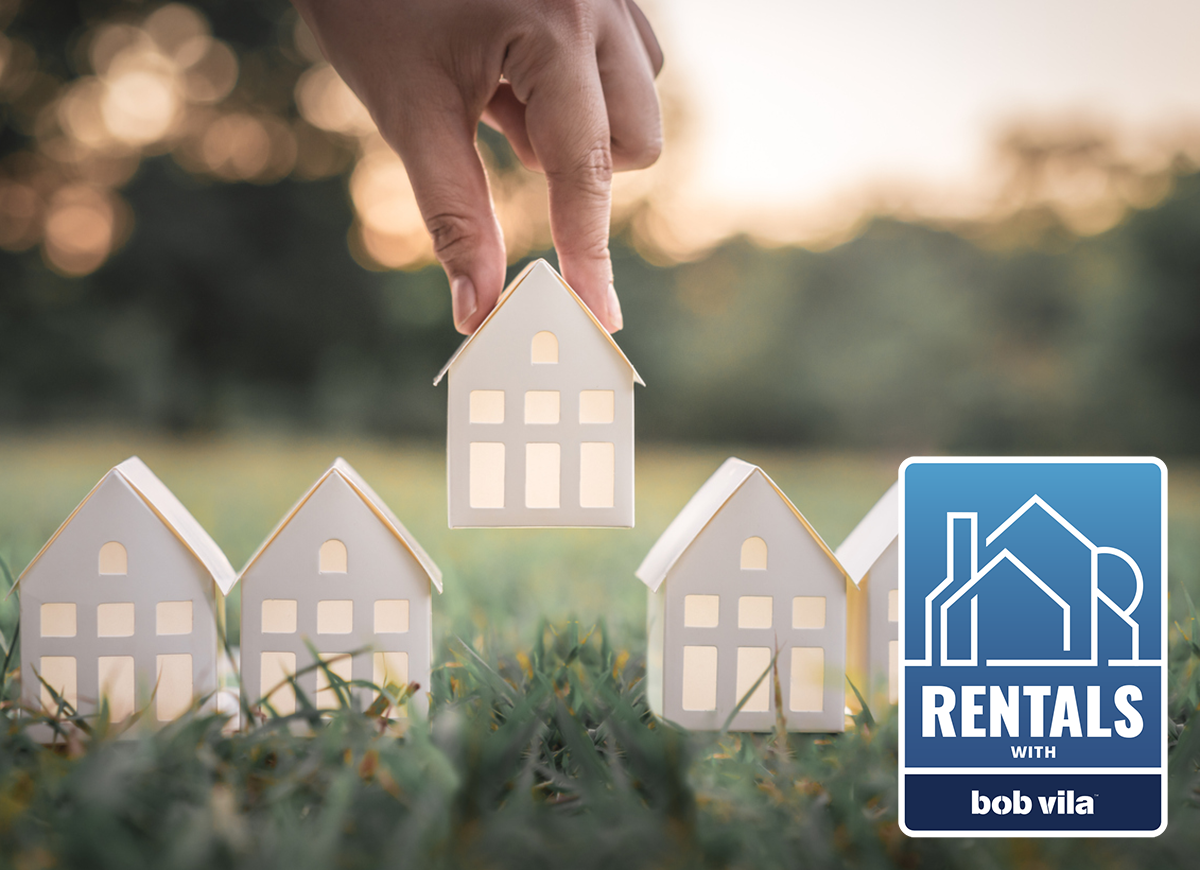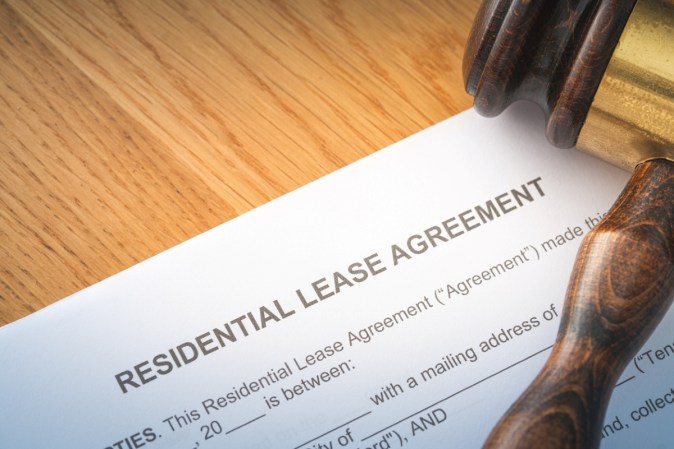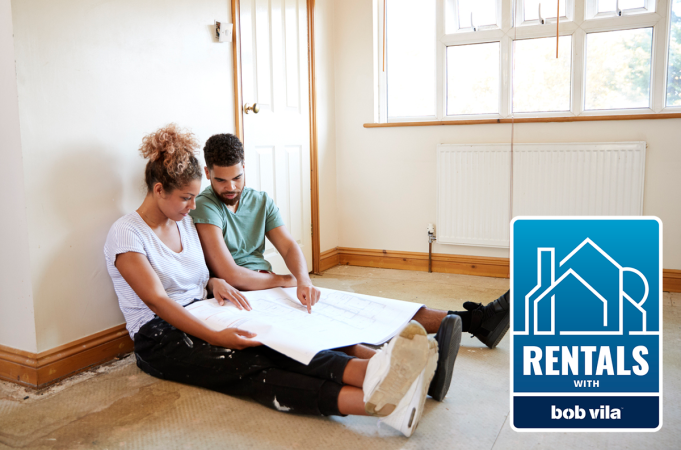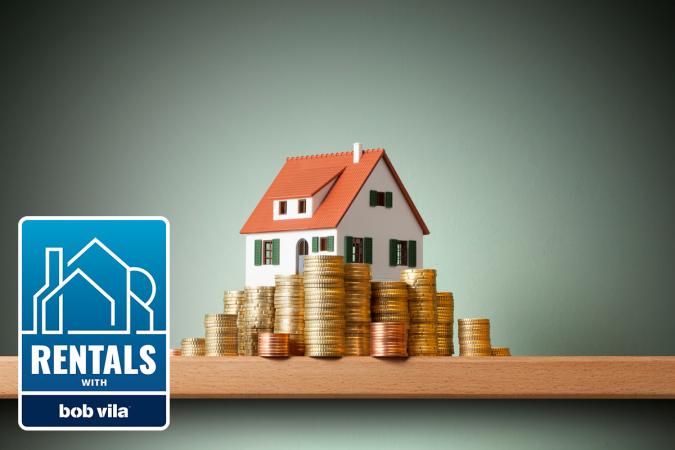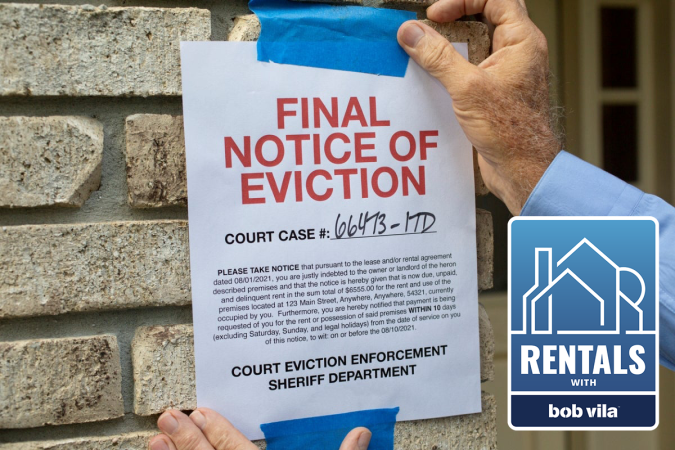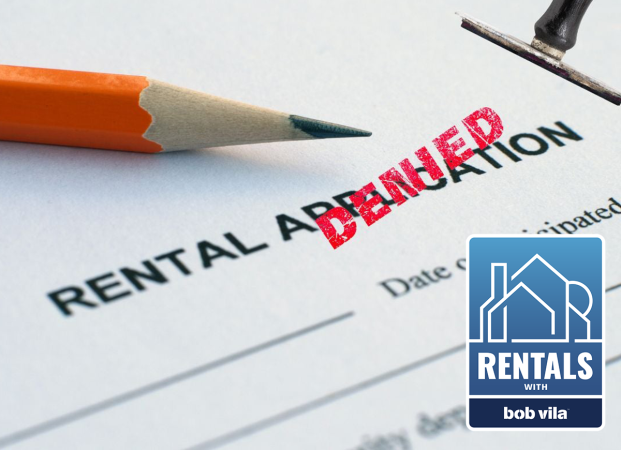We may earn revenue from the products available on this page and participate in affiliate programs. Learn More ›
Welcome to The State of Rentals with Bob Vila, a series dedicated to showing both landlords and tenants the crucial steps in finding the right property, potential challenges with renting, precautions to protect your interests, and ideas for making the most of your next move. We’ve included current market trends mixed with Bob’s tried-and-true advice, our vetted shopping guides, and the behind-the-scenes tips you need to make your rental a home.
The paint is dry, the apartment is spotless, and the appliances are plugged in. You’re a new landlord, ready to earn passive income by renting out your residential rental property. Congratulations! However, before you put a “For Rent” sign in the window and blast photos all over social media, there are some things you need to know. Here’s a checklist:
√ Check your state and local landlord-tenant laws.
Many states and municipalities have specific guidelines regarding landlord-tenant arrangements. It’s worth conducting an online search to find the laws in your state that apply. If you’re still unsure, hiring a local real estate attorney to review them and structure your lease accordingly could be wise.
RELATED: The Best Investment Property Loans
√ Set up the right business entities and bank accounts.
When you become a landlord, you also become a business owner. You should have a business bank account that reflects that. Talk to other investors, your accountant, or your bank to understand the correct financial setup to suit your new business.
RELATED: 5 Reasons Not to Own a House in Your Name
√ Have the correct insurance policy.
Again, local investors are a good source of information regarding insurance companies that carry landlord-compliant policies. It’s worth carrying extra insurance to ensure you are covered for any litigious situations. You might also want to include a rental-loss coverage component to give you peace of mind should your apartment become vacant for any period.
RELATED: Solved! I’m a Landlord — Do I Really Need Landlord Insurance?
√ Take professional photos with virtual staging.
To stand the best chance of getting rented quickly, your residential rental property needs some professional quality photos. Preferably, you can enhance them with virtual staging to help potential tenants visualize how their apartments could look. You should state in the ads that the units have been virtually staged, and that furniture is not included. Including non-staged photos alongside the staged ones can emphasize this.
√ Make sure you adhere to fair housing laws.
This is very important. As a landlord, you are legally bound to comply with federal, state, and local laws prohibiting discrimination based on race, color, religion, sex, national origin, familial status, or disability when renting an apartment. All your advertising and screening processes must adhere to these.
RELATED: Renters: How to Know If You’re Being Discriminated Against
√ Is your tenant allowed to rent your apartment?
Immigration has become a key political issue, and many legislations now state that landlords must check their tenant’s legal status. Stick to the protocol and check your prospective tenant’s legal status through passports, identity cards, permanent resident cards, etc.
RELATED: The Parts of Your Property You Can (and Can’t) Rent to Tenants
√ Provide a state compliant lease agreement.
Each state has specific types of leases they use. While these have room for modification, it’s a good idea to use one of these leases rather than one of your own, should you find yourself in a dispute with your tenant. They are widely available online or through an attorney if you are using one.
√ Collect a security deposit and place it in the right type of bank account.
Leases often state that security deposits will be kept in an interest-bearing escrow bank account. That tends to apply legally only to larger apartment buildings (10 units or above). However, even if you own a small residential rental property, it is a good idea to follow this same procedure. Your tenant is also looking at a larger apartment complex as well as yours, and being able to match those sorts of policies could help you attract a tenant who is on the fence.
RELATED: The 15 States With the Lowest Property Taxes in the U.S.
√ Collect your first and last month’s rent and/or a security deposit.
Whether you collect a tenant’s last month’s rent and a security deposit is up to you as a landlord. However, collecting the first month’s rent and a security deposit is standard landlord procedure and should be adhered to on most occasions. Some exceptions might occur regarding government aid or when tenants are in short supply, as happened in major cities during the pandemic.

√ Conduct a move-in inspection with the tenant.
Once you have found a tenant, conduct a move-in inspection with them to ensure they are satisfied with the property’s condition and sign an agreement stating as much. This also safeguards the landlord should damages occur for which the tenant is responsible.
√ Verbally reiterate your right to enter the property with notice for inspections and repairs.
Entering a tenant’s apartment can often become a bone of contention. The conditions under which a landlord can enter an apartment should both be clearly stated in the lease and verbally reiterated with the tenant.
RELATED: 4 Reasons Now Is the Time to Buy Rental Property
√ Make sure the lease reflects whether the tenant has a pet.
Tenants who plan to have a pet should state so in their lease and pay an additional security deposit. Some tenants might try to sneak a pet in during their tenancy. The landlord should clearly state in the lease the consequences if they do this.
√ Check if the tenant plans to run a home business from their apartment.
Some states and municipalities have specific rules regarding home businesses run from a personal residence. Ask your tenant if they plan to run any business from their apartment, and if they do, ensure you follow your state’s and city’s guidelines.
√ Reiterate your policy regarding subleasing and short-term rentals.
Short-term rentals and rental arbitrage have become extremely popular in recent years. Many landlords are fine with this as long as they receive their rent. For others, it can be an issue, especially if other tenants in the same building don’t like the idea of strangers entering and leaving the building every few days. Also, some cities (New York, Los Angeles, and San Francisco) have strict laws regarding short-term rentals.
RELATED: 6 Airbnbs That Show Why Themed Short-Term Rentals Are a Great Income Producer

√ Ensure that the names of the people living in the rental are reflected in the lease.
Renting an apartment to one person, only to find several people not on the lease also living there, is clearly dishonest from the tenant. It can cause additional wear and tear on the unit, not to mention annoy other tenants in the building. Ensure the lease clearly states the names of everyone living in the building and the consequences should a violation occur.
RELATED: The Best Property Management Software
√ Ensure the utility arrangement is reflected in the lease.
In some larger or older apartment buildings, the landlord pays for utilities. In more modern apartments, the tenants do. Make sure your lease reflects your arrangement so everything is clear.
√ Know your responsibilities regarding maintenance and repairs.
This is an issue that can confuse landlords or tenants. What are your rules regarding minor issues, such as replacing a lightbulb or spotting a mouse or cockroach in the apartment? If you expect a tenant to address these themselves, it should be clearly stated in the lease.
RELATED: Solved! Should I Get a Home Warranty for a Rental Property?
√ Address grass cutting, snow removal, and garbage policies.
Again, regular chores such as landscaping or taking out garbage should be addressed in your lease. In some single-family homes, landlords and tenants agree that the tenants handle the grass-cutting and snow removal. However, should they fail to do so, the landlord, not the tenant, could receive a ticket. Should there be any confusion, the landlord should sign up with a regular landscaping company to take care of this.
√ Make sure you have a savings/slush fund for emergencies.
The downfall of many landlords is not having cash put aside for ongoing expenses and repairs. When a landlord is highly leveraged or living off their rents, a significant expense or long-term vacancy can see their profit plummet, and they soon can find themselves in a financial hole. Avoid buying investments with thin profit margins; always defer some of your rental income for these expenses.
RELATED: 5 Financing Options to Kick-Start Your Real Estate Investing Career
√ State clearly how you plan to collect rents.
Most landlords set up online payments through a tenant’s bank account or other electronic means. Ensure your tenant is set up to pay by your preferred method before moving in

